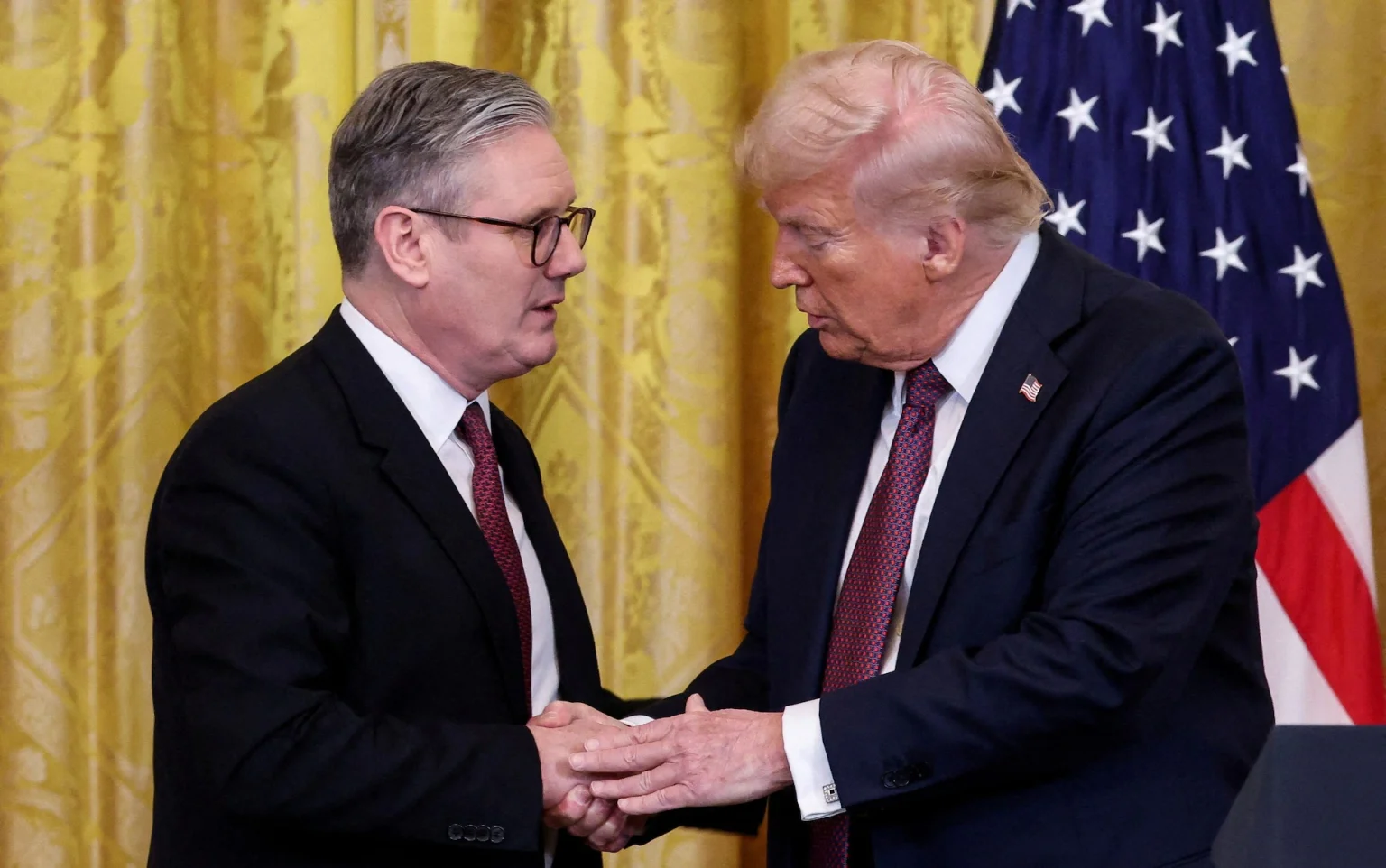Britain’s global influence appeared notably diminished yesterday as Prime Minister Sir Keir Starmer was left queuing behind other world leaders to greet US President Donald Trump at a high-stakes Gaza peace summit, according to The Daily Express.
The awkward moment, captured by international press photographers, showed Sir Keir fidgeting in the desert heat as he waited in line behind Egyptian President Abdel Fattah el-Sissi and Qatari Emir Sheikh Tamim bin Hamad Al Thani, while President Trump stood at the centre of attention following the signing of a landmark ceasefire agreement with Hamas.
The scene underscored what observers described as a symbolic illustration of Britain’s waning clout on the global stage, especially following the government’s controversial decision to recognise the State of Palestine earlier this year.
A “Historic Day” Overshadowed by Optics
Despite the optics, Sir Keir later described the summit as a “historic day,” noting that key regional players, including Egypt, Qatar, and Turkey had endorsed President Trump’s Gaza peace plan.
The agreement marks the first major truce in the prolonged conflict between Israel and Hamas. All 20 remaining Israeli hostages were released, paving the way for an influx of humanitarian aid into Gaza, partial Israeli troop withdrawals from major cities, and the release of hundreds of Palestinian prisoners.
President Trump, buoyed by a hero’s welcome earlier at Israel’s Knesset, where lawmakers donned “Trump, The Peace President” caps, appeared to relish his role as peacemaker.
Standing beside President el-Sissi, Trump declared, “We have a once-in-a-lifetime chance to put old feuds and bitter hatreds behind us,” adding, “Our future must not be ruled by the fights of generations past.”
While the United States dominated the negotiations, Sir Keir sought to highlight Britain’s potential contribution to the peace process. Speaking to reporters, he said: “What happens tomorrow really matters. What I’ve been discussing with leaders all day is the part Britain can play, particularly in monitoring the ceasefire and helping decommission Hamas’s weaponry, drawing on our experience from Northern Ireland.”
Read Also:
Badenoch presses Starmer for answers over collapsed China spy case
Starmer hails Trump’s leadership in Gaza peace deal
Starmer faces tough choice as China’s London super-embassy sparks controversy
Sir Keir’s remarks drew polite nods from some delegates, but President Trump made no secret of his intention to keep the United States at the forefront of post-war reconstruction and oversight.
The U.S. president announced that around 200 American troops would be deployed as part of a multinational monitoring team, while Britain would assume a secondary, “supporting” role pending further consultations.
Trump described his vision for Gaza’s reconstruction as a transformation into “the Riviera of the Middle East,” promising economic aid and private-sector partnerships to rebuild the war-torn enclave.
Global Reaction and Political Undertones
The summit, attended by nearly three dozen nations, comes at a fragile moment in Middle East diplomacy. Trump hailed the ceasefire as a “miracle in motion,” insisting, “Everybody said it’s not possible to do and it’s happening before your very eyes.”
Israeli Prime Minister Benjamin Netanyahu declined to attend, citing a Jewish holiday, but praised Trump from afar, calling him “the greatest friend Israel has ever had in the White House.”
Sir Keir avoided questions about whether he or former Prime Minister Sir Tony Blair might join Trump’s proposed Gaza Peace Board, clarifying that while discussions were ongoing, he had “not put himself forward” for a position.
“What I have put our country forward for,” he said, “is to ensure that Britain continues to do what it does best — working behind the scenes to help secure peace, monitor the ceasefire, and share our expertise in decommissioning.”
Analysts say the summit showcased Trump’s resurgence on the world stage as a self-styled dealmaker, while Britain’s reduced visibility highlighted a shift in global power dynamics since Brexit.
Although Sir Keir described the event as an opportunity to “restore Britain’s global leadership,” diplomatic sources suggested the episode reflected a new geopolitical reality, with Washington, Cairo, and Doha now leading the mediation framework.
Despite the optics, the United Kingdom is expected to contribute peace monitors, technical advisers, and humanitarian support to the Gaza reconstruction mission, marking a continued but modest presence in Middle East diplomacy.



